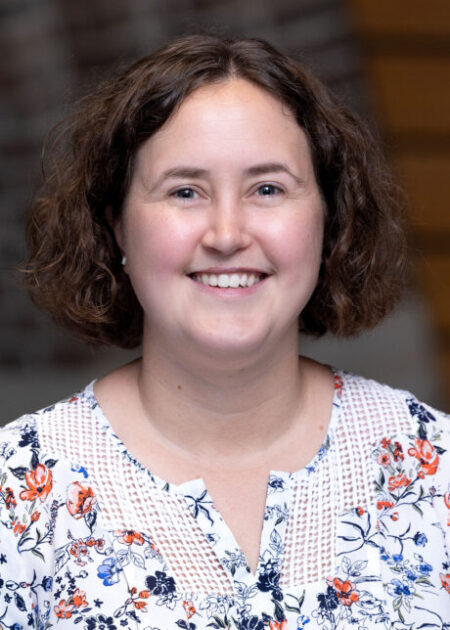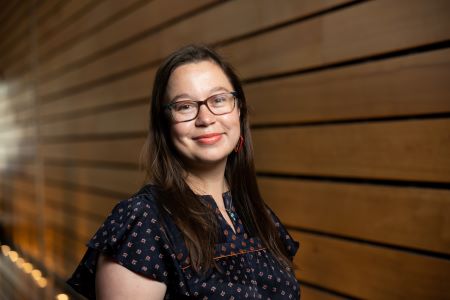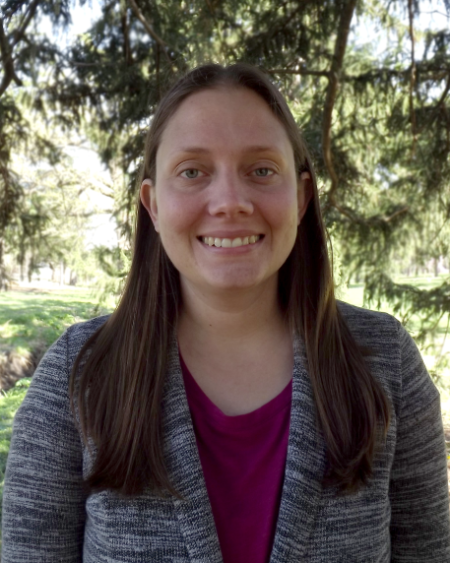Project Leads & Researchers

Dr. Kozhimannil is Director of the RHRC and a Professor in the Division of Health Policy and Management, University of Minnesota School of Public Health.
Education
- PhD, Health Policy, Harvard University, 2009
- MPA., Public Policy and Administration, Woodrow Wilson School of Public and International Affairs, Princeton University, 2003
- BA, Spanish and International Relations and Spanish (summa cum laude), University of Minnesota, 1999
Experience
Dr. Kozhimannil conducts research to inform the development, implementation, and evaluation of health policy that impacts health care delivery, quality, and outcomes during critical times in the lifecourse, including pregnancy and childbirth. The goal of her scholarly work is to contribute to the evidence base for clinical and policy strategies to advance racial, gender, and geographic equity and to collaborate with stakeholders in making policy change to address social determinants and structural injustice in order to facilitate improved health and well-being.
Dr. Kozhimannil’s research, published in major journals such as Science, the New England Journal of Medicine, JAMA, Health Affairs, American Journal of Public Health, Medical Care, and the American Journal of Managed Care, has been widely cited. Media coverage of her research, including feature stories by the New York Times, Washington Post, National Public Radio, Wall Street Journal, US News & World Report, and the Huffington Post, has generated dialogue, interest and policy action at local, state, and national levels. In addition to conducting research, Dr. Kozhimannil teaches courses that build skills for effective engagement in the policy process, and works extensively with community organizations and state and federal policy makers on efforts to improve the health and well-being of individuals, families, and communities, starting at birth.
Prior to starting her academic career, Dr. Kozhimannil worked on HIV/AIDS prevention and policy as well as education and youth development both domestically and abroad. She served as a Peace Corps Volunteer in rural Mozambique and has worked for Ibis Reproductive Health, the World Bank, Population Services International, the American Red Cross, and the YMCA.
Research Interests
- Health care policy
- Quality of care
- Maternal and child health
- Health equity
- Analysis of administrative/claims data
- Longitudinal analysis
Recent Awards
- Outstanding Service Award, National Indian Health Board (2023)
- Aaka Pande and Sumit Majumdar Memorial Award, Harvard Medical School (2022)
- Outstanding Educator Award, National Rural Health Association (2022)
- Heinz Award for outstanding contributions in public policy, Heinz Family Foundation (2020)
- 2018 Carol Weisman and Gary Chase Gender-Based Research Award, AcademyHealth (2018)
- 2016 Alice S. Hersh New Investigator Award, AcademyHealth (2016)

Dr. Henning-Smith is Deputy Director of the University of Minnesota Rural Health Research Center and an Associate Professor in the Division of Health Policy and Management, University of Minnesota School of Public Health. She has been with the RHRC since 2015.
Education
- PhD, Health Services Research, Policy, and Administration, University of Minnesota, 2015
- MS, Health Services Research, Policy, and Administration, University of Minnesota, 2015
- MPH, Health Behavior and Health Education, University of Michigan, 2006
- MSW, Social Work Interpersonal Practice and Mental Health, University of Michigan, 2006
- BA, International Relations, Claremont McKenna College, 2003
Experience
Dr. Henning-Smith applies her interdisciplinary training in health services research, public health, social work, gerontology, and demography to study policy-relevant issues for rural populations. She has led multiple research projects at the Rural Health Research Center, with a wide range of topics including the social determinants of health, access to and quality of care, and aging and long-term care. She was chosen as a 2017 Rural Health Fellow by the National Rural Health Association and serves as the current editorial board chair for the Journal of Rural Health.
Research Interests
- Social determinants of health
- Demography
- Aging and long-term care
- Disability policy
- Housing and transportation issues
- Access to care
Recent Fellowships and Awards
- Rural Health Fellow, National Rural Health Association (2017-2018)
- Heath Equity Leadership & Mentoring Program Fellow, University of Minnesota (2016-2017)
- Interdisciplinary Doctoral Fellowship, University of Minnesota (2014-2015)
- Hearst Fellowship in Public Health and Aging (2013-2014)
- RAND Summer Institute Fellowship (2013)

Alyssa is a Research & Policy Fellow. She began part-time work at RHRC in January of 2021 and joined the team full-time in August of 2022.
Education
- MPH, Johns Hopkins University, 2018
- BS Nutrition, University of Minnesota, 2012
Experience
As a registered dietitian and lactation counselor by training, Ms. Fritz began her career working with individuals and families in a local WIC agency, which fueled her passion for maternal and child health equity. After earning her MPH, she worked at the Minnesota House of Representatives, where she staffed the Health and Human Services Policy Committee, Education Policy Committee, Early Childhood Committee, and the Select Committee on Racial Justice. She worked with both the University of Minnesota Center for Antiracism Research for Health Equity and the Rural Health Research Center before joining RHRC full time in her current role. Ms. Fritz brings experience working in public health at the individual/family-focused level, community-focused level, and state policy level.
Research Interests
- Maternal and child health
- Health equity
- Health care policy
- Social determinants of health

Education
- PhD, Health Services Research, Policy, and Administration, University of Minnesota, 2022
- MPH, Epidemiology, Emory University, 2014
- BA, Studies in Women and Gender, Foreign Affairs, University of Virginia, 2009
Experience
Dr. Interrante is a health services researcher and epidemiologist with expertise in maternal health and health care access. Her research examines the effects of policy on maternal health outcomes and on access to maternity care services with specific focus on geographic and racial equity, and includes topics such as disparities in severe maternal morbidity and mortality, changing access to rural maternity care, and the impact of payment policies on maternal and postpartum care. She has research experience using a wide variety of quantitative methods using data from large complex weighted surveys, administrative and claims databases, national secondary quantitative data, and primary quantitative and qualitative data. Prior to coming to the RHRC, Dr. Interrante worked as an epidemiologist at the Centers for Disease Control and Prevention (CDC) in a variety of areas including birth defect research, maternal medication use, and fertility, as well as domestic and global tuberculosis and HIV surveillance and prevention. While working at the CDC, Dr. Interrante developed data quality assessment protocols and tools, conducted data use training, and provided policy guidance and technical assistance to foreign Ministries of Health and domestic Departments of Health.
Research Interests
- Reproductive health policy/policy analysis
- Maternal health care and health outcomes
- Social epidemiology/epidemiologic methods
- Health equity
- Access to care

Ingrid is a Research Fellow with the University of Minnesota Rural Health Research Center (RHRC). She joined the RHRC in September 2023.
Education
- MPH, Epidemiology, University of Minnesota, 2023
- BA Biology, Concordia College Moorhead, 2020
Experience
Ms. Jacobson is a public health researcher and epidemiologist with expertise in rural health, infectious diseases, and genetic diseases. She works closely with Dr. Henning-Smith on a wide variety of research projects at the RHRC. During graduate school, she worked at the Minnesota Department of Health (MDH) in the foodborne illness unit, and as a research assistant in a genetic epidemiology lab. She has experiencing working with many types of quantitative and qualitative data including weighted and unweighted surveys, national and international secondary data, genomic and proteomic data, key informant interviews, focus groups, and case studies.
Research Interests
- Social determinants of health
- Infectious diseases in rural areas
- Disability policy

Megan is a Senior Research Fellow at the Rural Health Research Center, hired in September of 2017.
Education
- MPH, Public Health Administration and Policy, University of Minnesota, 2017
- BA, Sociology, Kenyon College, 2010
Experience
Prior to coming to the Rural Health Research Center, Ms. Lahr worked at the State Health Access Data Assistance Center (SHADAC) on a variety of projects related to access, cost, quality, and health outcomes. Ms. Lahr also spent several years working in federal policy for U.S. Senator Amy Klobuchar. While working in the Senate in Washington, D.C. and Minneapolis, MN, she held several positions focusing on operations, policy development, health reform, and healthcare outreach and casework.
Research Interests
- Health policy and systems
- Access to care
- Health equity

Madeleine Pick is a Research Fellow with the University of Minnesota Rural Health Research Center (RHRC), primarily working on the Flex Monitoring Team (FMT). She joined the RHRC full-time in March 2020.
Education
- MPH, Public Health Administration & Policy, University of Minnesota, 2019
- BS Neuroscience, University of St. Thomas, 2013
Experience
Since joining the RHRC and FMT, Ms. Pick’s work has focused on quality of care and best practices in Critical Access Hospitals and access to health care for rural residents. She has also contributed to work addressing needs of marginalized populations, including the health and well-being of rural LGBTQ+ residents and language interpreter services in Critical Access Hospitals. Prior to joining the RHRC, she worked in clinical research at the Veterans’ Health Administration, conducted a community health assessment for a local public health department, and compiled a suicide prevention toolkit for rural communities.
Research Interests
- Health and hospital systems
- Quality improvement
- Health equity

Education
- MPH, Community Health Sciences, University of Illinois at Chicago, 2017
- BA, Psychology and Sociology/Anthropology, St. Olaf College, 2015
Experience
Research Interests
- Health outcomes for Indigenous communities
- Health equity
- Access to care
- Social determinants of health
- Maternal and child health

Dr. Schroeder is a Research Scientist at the University of Minnesota’s Institute for Social Research and Data Innovation. He began contributing to RHRC projects in September 2019.
Education
- PhD, Geography, University of Minnesota, 2009
- MA, Geography, University of Minnesota, 2004
- BA, Computer Sciences + English, University of Wisconsin–Madison, 1998
Experience
Dr. Schroeder has worked at the Minnesota Population Center and the IPUMS Center for Data Integration at the Institute for Social Research and Data Innovation (ISRDI) since 2009. His primary role is as a project manager for the IPUMS National Historical Geographic Information System (NHGIS), a website that provides free online access to summary statistics and GIS files for U.S. censuses and other nationwide surveys from 1790 through the present. Schroeder leads the development and documentation of new NHGIS data products, including NHGIS time series tables, which link together census summary data from multiple years using harmonized categories and geographic units. He also leads the development of integrated geographic variables for IPUMS USA census microdata. As an RHRC contributor, he provides expertise in U.S. population geography, map design, and geographic data analysis, with deep knowledge of U.S. census data resources for studying rural populations.
Research Interests
- Geographic harmonization of census data
- U.S. population geography
- Spatial models and analysis
- Map design

Education
- PhD, Sociology, University of Nebraska-Lincoln, 2018
- MA, Sociology, University of Nebraska-Lincoln, 2012
- BA, Sociology, Doane University, 2007
Experience
Research Interests
- Social determinants of health
- Family and social support
- Work, family roles, and well-being
- Minority health disparities

Mariana is a Research Fellow. She began full-time work at RHRC in June of 2019.
Education
- MPH, Public Health Administration & Policy, University of Minnesota, 2019
- BA Biology, BA Spanish, University of Arkansas, 2012
Experience
Throughout graduate school, Ms. Tuttle worked on health policy-relevant research, analysis, and dissemination efforts at the National Alliance on Mental Illness (NAMI), the MN Department of Human Services, and the University of Minnesota School of Public Health. She brings experiences effectively writing about and presenting health-related data to impact policy that drives population health. These experiences combine with substantive skills in both quantitative and qualitative data analysis from her MPH. Prior to pursuing her MPH, she worked for several years in market research and technology, where she designed projects for clients, managed communication, and coordinated business development efforts. This work further built on her natural understanding of innovative and creative ways to disseminate important information.
Research Interests
- Health equity
- Health care policy
- Maternal and child health
- Quality improvement
- Access to care
Students

Dionne is a Graduate Research Assistant at the Rural Health Research Center. She began working with the RHRC in March of 2024.
Education
- MPH, Morehouse School of Medicine, 2021
- BS, Human Performance (Concentration: Sports Medicine), Howard University, 2019
Experience
Dionne is from the great state surrounded by lakes, Michigan. Dionne is a third-year Ph.D. student in the University of Minnesota’s Health Services Research, Policy and Management program. Prior to her matriculation into the program, she attended Howard University as a student-athlete and earned her bachelor’s in Human Performance with a concentration in Sports Medicine and a minor in chemistry. Following, she attended Morehouse School of Medicine, where she earned her Master’s in Public Health.
Research interests
- Aging
- Aging in place
- Gentrification
- Neighborhoods
- Health equity
- Health disparities
- Racial equity


.
Education
- MPH, Maternal, Child, and Family Health, Gillings School of Global Public Health, 2022
- BS, Biology; BA, African, African American, and Diaspora Studies, University of North Carolina at Chapel Hill, 2017
Experience
Prior to joining the RHRC, Ms. Sheffield worked as a research assistant in the Department of Family Medicine at the University of North Carolina at Chapel Hill, conducting research for an evaluation of a newly opened maternity care center at a rural Critical Access Hospital in North Carolina. She joined the RHRC with substantive skills in quantitative and qualitative data analyses and with a graduate certificate in Survey Science from her MPH. Prior to pursuing graduate school, she worked for several years in disability advocacy and education research spaces.
Research interests
- Reproductive health policy/policy analysis
- Pregnancy/postpartum health care and health outcomes
- Rural maternity care
- Reproductive justice and birth equity
- Maternal and child health
- Mixed methods, quantitative research methods


